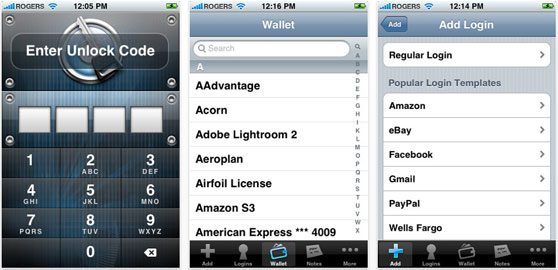| Developer(s) | Jens 'atom' Steube, Gabriele 'matrix' Gristina |
|---|---|
| Stable release | |
| Repository | github.com/hashcat/ |
| Operating system | Cross-platform |
| Type | Password cracking |
| License | MIT License |
| Website | hashcat.net/hashcat/ |

Hashcat is a password recovery tool. It had a proprietary code base until 2015, but was then released as open source software. Versions are available for Linux, OS X, and Windows. Examples of hashcat-supported hashing algorithms are LM hashes, MD4, MD5, SHA-family and Unix Crypt formats as well as algorithms used in MySQL and Cisco PIX.
Hashcat has been publicly noticed because of its optimizations; partly based on flaws in other software discovered by the creator of hashcat. An example was a flaw in 1Password's password manager hashing scheme.[1] It has also been compared to similar software in a Usenix publication[2] and been described on Ars technica.[3]
(92) Description. This extension requires a 1Password membership. If you don't have one yet, you can sign up when you install the extension and try one free. 1Password is a password manager that keeps you safe online. Hashcat has been publicly noticed because of its optimizations; partly based on flaws in other software discovered by the creator of hashcat. An example was a flaw in 1Password's password manager hashing scheme. It has also been compared to similar software in a Usenix publication and been described on Ars technica. Select the.agilekeychainzip file and choose File Get Info from the menu bar. Change the underscore in the extension to a period (.). So the extension changes from.agilekeychainzip to.agilekeychain.zip. For example, 1Password 2011-23 (56 items).agilekeychainzip becomes 1Password 2011-23 (56 items).agilekeychain.zip. 1Password is committed to helping you succeed in this program, so we've set up a researcher vault with additional helpful information. To receive an invitation to the vault, opt in by emailing support+bugcrowd@agilebits.com with your Bugcrowd username; you'll be provisioned account access to the 1Password vault where we provide supplemental. The retired Agile Keychain format uses PBKDF2-HMAC-SHA1 for key derivation. The number of iterations depends on the version of 1Password used to create the vault and the processing power of the machine where it was created. History of PBKDF2 in 1Password. 1Password introduced the Agile Keychain format with PBKDF2-HMAC-SHA1 in.
Variants[edit]
Previously, two variants of hashcat existed:
- hashcat - CPU-based password recovery tool
- oclHashcat/cudaHashcat - GPU-accelerated tool (OpenCL or CUDA)
With the release of hashcat v3.00, the GPU and CPU tools were merged into a single tool called hashcat. The CPU-only version became hashcat-legacy.[4] Both CPU and GPU now require OpenCL.
Many of the algorithms supported by hashcat-legacy (such as MD5, SHA1, and others) can be cracked in a shorter time with the GPU-based hashcat.[5] However, not all algorithms can be accelerated by GPUs. Bcrypt is an example of this. Due to factors such as Competitions at DefCon in 2010,[15] 2012, 2014,[16] 2015,[17] and 2018, and at DerbyCon in 2017.

See also[edit]
References[edit]
- ^'On hashcat and strong Master Passwords as your best protection'. Passwords. Agile Bits. 16 April 2013.
- ^Ur, Blase (12 August 2015). 'Measuring Real-World Accuracies and Biases in Modeling Password Guessability'(PDF). Proceedings of the 24th USENIX Security Symposium.
- ^Goodin, Dan (26 August 2013). ''thereisnofatebutwhatwemake' - Turbo-charged cracking comes to long passwords'. Ars Technica. Retrieved 21 July 2020.
- ^'hashcat v3.00'. Hashcat. Hashcat project. 29 June 2016.
- ^'Recent Developments in Password Cracking'. Passwords. Bruce Schneier. 19 September 2012.
- ^https://hashcat.net/wiki/doku.php?id=hashcat#supported_attack_modes
- ^https://hashcat.net/wiki/doku.php?id=hashcat#supported_attack_modes
- ^https://hashcat.net/wiki/doku.php?id=hashcat#supported_attack_modes
- ^https://hashcat.net/wiki/doku.php?id=hashcat#supported_attack_modes
- ^https://hashcat.net/wiki/doku.php?id=hashcat#supported_attack_modes
- ^https://hashcat.net/wiki/doku.php?id=hashcat#supported_attack_modes
- ^https://hashcat.net/wiki/doku.php?id=hashcat#supported_attack_modes
- ^'PRINCE: modern password guessing algorithm'(PDF). Hashcat site. Hashcat. 8 December 2014.
- ^Team Hashcat
- ^''Crack Me If You Can' - DEFCON 2010'. contest-2010.korelogic.com. Retrieved 21 July 2020.
- ^'Crack Me If You Can 2014 Contest'. KoreLogic Security.
- ^'Another trophy in the Pocket! Win @ CMIYC contest 2015'. hashcat.net. Retrieved 21 July 2020.



External links[edit]
- Official website
- Talk: Confessions of a crypto cluster operator based on oclHashcat at Derbycon 2015
- Talk: Hashcat state of the union at Derbycon 2016
Select the .agilekeychain_zip file and choose File > Get Info from the menu bar.
Change the underscore (_) in the extension to a period (.). So the extension changes from .agilekeychain_zip to .agilekeychain.zip. For example,
1Password 2011-02-24 205523 (56 items).agilekeychain_zipbecomes1Password 2011-02-24 205523 (56 items).agilekeychain.zipClick Use .agilekeychain.zip when asked.
Double-click the file (now a .zip file) to decompress it.
You should now have a usable Agile Keychain (.agilekeychain). Using the same example from above, you would end up with a file called 1Password 2011-02-24 205523 (56 items).agilekeychain which can then be opened in 1Password 4 or later.
Agilebits 1password License
Right-click the .agilekeychain_zip file, and choose Rename.
Change the underscore (_) in the extension to a period (.). So the extension changes from .agilekeychain_zip to .agilekeychain.zip. For example,
1Password 2011-02-24 205523 (56 items).agilekeychain_zipbecomes1Password 2011-02-24 205523 (56 items).agilekeychain.zipWindows will ask you to confirm that you would like to change the filename extension. Click Yes.
Double-click the file (now a .zip file) to decompress it.
Agile 1password
You should now have a usable Agile Keychain (.agilekeychain). Using the same example from above, you would end up with a file called 1Password 2011-02-24 205523 (56 items).agilekeychain which can then be opened in 1Password 4 for Windows (File > Open 1Password vault).
